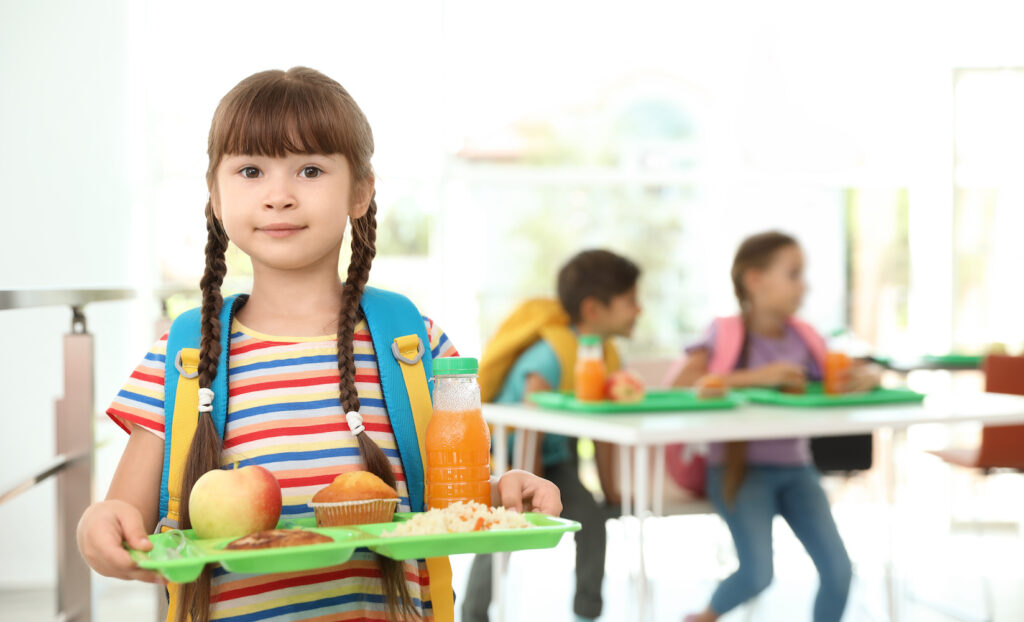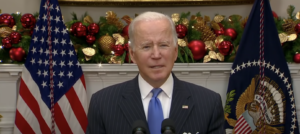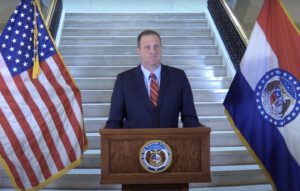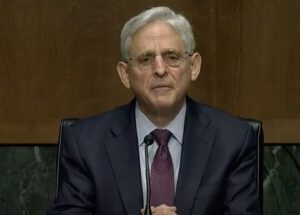‘You don’t care about disadvantaged children’: the Biden administration is bullying school districts into complying with radical policies, says parent advocate
The Biden administration is being accused of bullying school districts into submission – even if it requires taking meals from disadvantaged students.
In Missouri, the state’s largest school…

The Biden administration is being accused of bullying school districts into submission – even if it requires taking meals from disadvantaged students.
In Missouri, the state’s largest school district, Springfield Public Schools, was told to add sexual orientation and gender identity to the list of protected groups or risk losing federal funding for free and reduced meals.
“It was intended to bully and intimidate these school districts into compliance,” Nicole Neily, president of Parents Defending Education, told The Lion.
“Nice school lunch program you have there for poor kids, be a shame if something happened to it,” Neily said, tongue-in-cheek. “You are literally taking food out of the mouths of poor children to advance your preferred gender policy. That is dark.”
Similar strong-arming is happening elsewhere, she says.
Earlier this year in Georgia, the Department of Education claimed a school district violated students’ rights simply by removing sexually explicit books from libraries.
“It was very much intended to send a chilling message to other school districts across the country,” Neily explained. “Do you really want to go through the many, many months and time and hassle and expense of bringing in lawyers and doing a huge investigation? Wouldn’t it just be easier if you just didn’t remove the books at all?” she said, of the implied message from the administration.
While the Biden administration’s tactics are pushing radical policies about gender and race, the strategy itself isn’t new. According to Neily, the Obama administration used similar tactics to reduce discipline in schools under the guise of racial equity.
Obama’s policy threatened school districts with federal investigations if their data showed a “disparate impact” or higher rates of discipline for students of certain races.
The Trump administration later repealed the policy only to have the Biden administration reinstate it.
While many nowadays blame the pandemic for a worsening of student behavior, Neily thinks it has a lot to do with Obama’s disparate impact policy.
She even cited the case of Nikolas Cruz, the perpetrator of the Parkland high school shooting, who wasn’t expelled despite numerous instances of threats and disturbing behavior.
“Districts took steps to not discipline students that had been acting out because they were fearful that doing so might throw off their numbers on paper,” Neily said.
The concern over “strings attached” to federal funding has some schools at all levels seeking a way out.
Several Christian colleges like Hillsdale and Patrick Henry have long refused to take federal funding, but now the state of Tennessee is considering the same for K-12 public education, which sees nearly $2 billion come in each year from the federal government.
But many other public schools remain full steam ahead, and academics are declining as a result, Neily tells the Lion.
“Not only have [schools] asserted themselves into the center of this political firestorm – values-based topics – but children are just not learning,” she said. “The values that families have at home are distasteful to a lot of educators and administrators [so] schools are now spending hours and hours every day on identity issues. When you spend lots of time talking about feelings and race and identity and not a lot of time reading, writing, ‘arithmetic-ing’ [and] ‘science-ing,’ students don’t actually learn those subjects.”
For Neily, the prospect of withholding lunch money from students in Springfield makes abundantly clear that the government cares more about its agenda than the students it claims to advocate for.
“These are the same people that have been screaming equity from the rooftops forever,” Neily said. “Who is going to be most impacted by a program that serves [meals] to disadvantaged children? Sadly, it is going to be a lot of minority families. You don’t care about them.”



